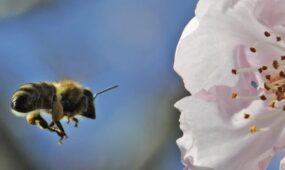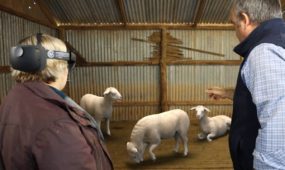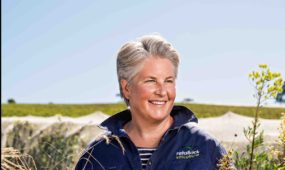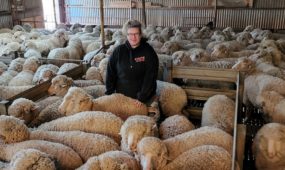From farmer to pharma, waste provides food for thought in South Australia
Primary Industries
Agricultural waste and products deemed not worthy of the supermarket shelf will be used to make a range of value added products including pharmaceuticals, food additives and cosmetics.

Sign up to receive notifications about new stories in this category.
Thank you for subscribing to story notifications.
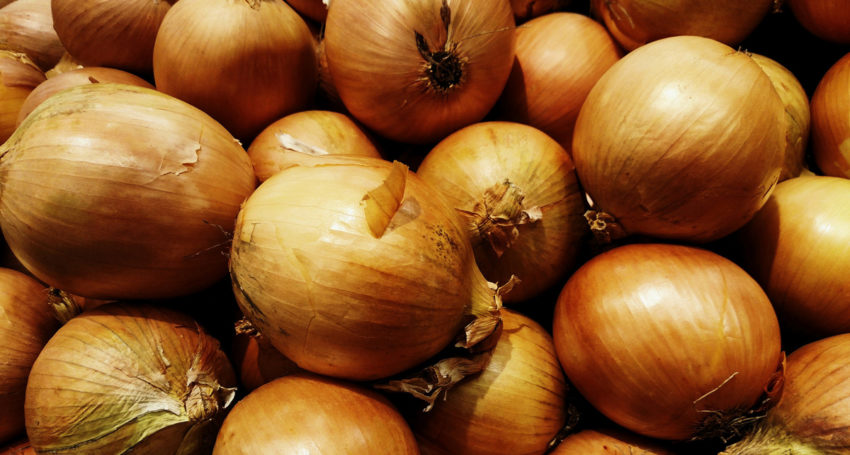
Launched this month in South Australia, the $10.9 million Agricultural Product Development Research Consortium will be hosted at the University of Adelaide’s Waite Campus.
It brings together 18 partners to develop high-value products from agricultural waste, including nine South Australian-based companies from the agriculture and food sector and a further nine national and international academic institutions and industry partners.
Research Consortium Lead Investigator Professor Vincent Bulone said he hoped the first commercial products would be ready for launch within 12 months.
He said a prototype had already been made of a cartridge made of cellulose from crop waste, which can be integrated into air purification systems and used in piggeries or food storage rooms.
Some biomolecules that can be derived from crop waste also have anti-oxidant, anti-inflammatory, anti-microbial, anti-cancer or gut-health properties.
Examples include the food colourant anthocyanin from apples and cherries, chitosan from mushrooms for use in skin care products, quercetin from onions, which has anti-oxidant and anti-inflammatory properties, sulforaphane from Brassica vegetables with potential benefits for diabetes patients and cellulose used for composite materials.
Professor Bulone said the method for extracting various molecules from the different waste types he was targeting was often exactly the same because it targeted the same class of compound.
“My idea is to scale up and have a manufacturing business established quickly to produce these molecules as commercial products,” he said.
“We could then take all kind of biomass all year-round depending on the season whether it be cherries, onions or apples so we can have continuous production.
“I already have two international players that have written letters saying that if we produce it they will buy it because there is a high need.”
The consortium will also conduct research to discover compounds and molecules with potential to become new products in the longer term.
Research partners in the project include the University of Adelaide, University of South Australia, CSIRO and Sweden’s Royal Institute of Technology where Professor Bulone is a former director of the KTH Advanced Carbohydrate Materials Consortium.
“The lab there specialises in the development of composite materials derived from carbohydrate so I’m involving the researchers from that university to help with the development of intelligent materials derived from carbohydrates in waste, potentially from cellulose but possibly also from the starch and the pectins to make intelligent packaging materials,” Professor Bulone said.
“For instance, materials that will change colour depending on relative humidity – this can be very useful particularly if you are wanting to control the moisture content in your packaged foods or vegetables in the storage room.”
Industry partners in the project include South Australian producers Filsell’s Orchards, Raw Nation Wholefoods, Ashton Valley Fresh, JVJ Co, SA Mushrooms and Potatoes South Australia. It also involves Denmark’s Carlsberg Group and South Australia’s Coopers Brewing along with American ingredients solutions company Ingredion.
“Agriculture is already a key contributor to South Australia’s economy but its huge potential to generate high-value products and create new post-farmgate industries has not yet been realised,” Professor Bulone said.
“Our agricultural and horticultural industries generate abundant waste biomass, which is currently disposed of at a cost to the producer, or only a low return.
“At the moment we are importing some of these compounds that we have in our waste because we do not have the right industry to extract them and prepare them from waste.
“By value adding to that waste with new products, the growers can keep growing, increase their margin and ensure the sustainability of rural activities across the country.”
Jump to next article
